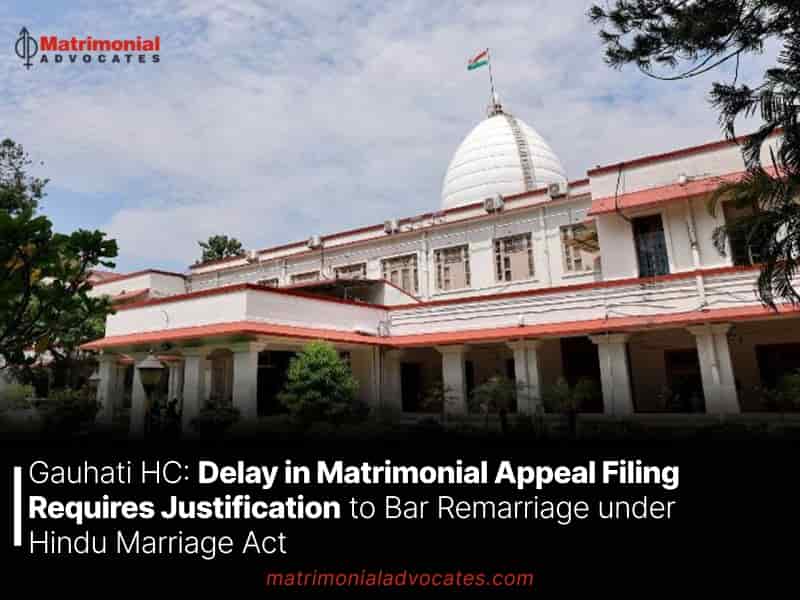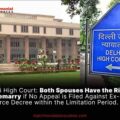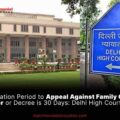
Recently, the Gauhati High Court denied an Interlocutory Application by a woman seeking forgiveness for a 122-day delay in filing her matrimonial appeal challenging a District Court’s ex-parte divorce decree. Justice Parthiv Jyoti Saikia, acting as a single judge, rejected the plea under Section 5 of the Limitation Act, 1963, stating the delay was inadequately explained. The applicant did not contest her husband’s divorce petition under Section 13 of the Hindu Marriage Act in the Kokrajhar District Court, leading to the ex-parte decree on July 17, 2021. She later filed an appeal, attributing her delay to being sent to Mathura, Uttar Pradesh during the COVID-19 pandemic, preventing her from contesting the case in Kokrajhar
The applicant attributed the delay to her obligations towards her 8-year-old son and elderly parents, with her legal representative citing the Supreme Court’s decision in Tejinder Kaur v. Gurmit Singh (1988) 2 SCC 90.
In contrast, the respondent contended that during the delay, the applicant’s husband had remarried. The respondent’s lawyer invoked the Supreme Court’s decision in Krishnaveni Rai v. Pankaj Rai (2020) 11 SCC 253, emphasizing pertinent legal principles.
“The bar, if any, under Section 15 of the Hindu Marriage Act applies only if there is an appeal filed within the period of limitation, and not afterwards upon condonation of delay in filing an appeal unless of course, the decree of divorce is stayed or there is an interim order of court, restraining the parties or any of them from remarrying during the pendency of the appeal.”
The Court noted that following the ex parte decree issued on July 17, 2021, no appeal was filed within the ensuing 90-day period. As a result, the respondent husband remarried on May 26, 2022.
“I am of the considered opinion that the bar of Section 15 of the Hindu Marriage Act would not be applicable in the present case. Moreover, I find that the delay has not been satisfactorily explained in this case,” the Court noted.





